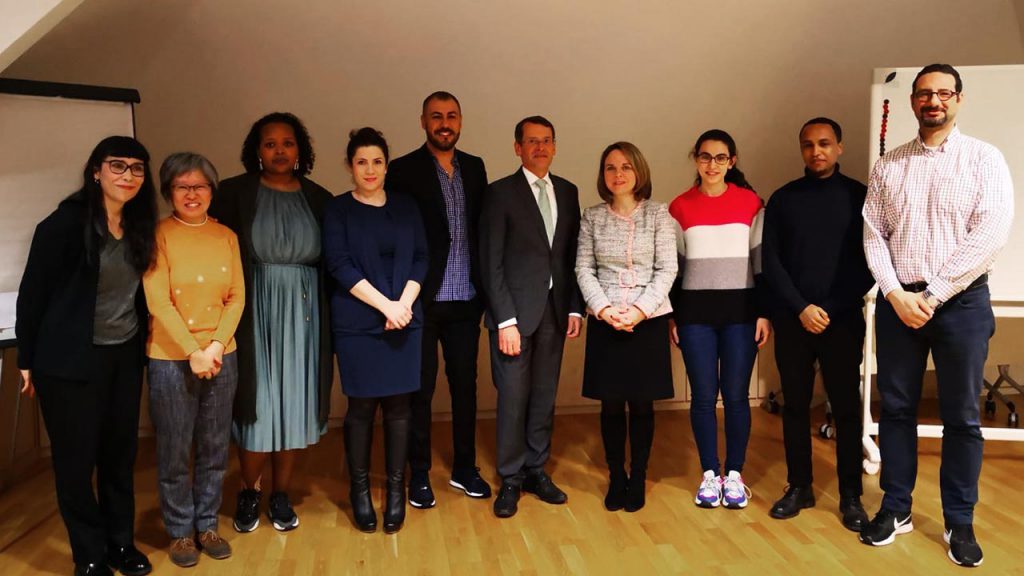
Communicating without barriers
The mission of this service is to provide public administrations as well as medical, aid or assistance institutions with professional support in situations where communication is difficult and/or where a culture gap exists. Intercultural interpreting enables communication between people who do not speak the same language – taking into account the social and cultural contexts of the interlocutors.
Intercultural interpreters have sufficient knowledge of at least one of the official languages of Luxembourg and of the language into which they interpret to provide full and appropriate interpretation in both languages. Because of their background, they are also familiar with migration as well as the realities of life in the country of origin and in the host society.


The presence of an interpreter to facilitate communication is not only a step towards respecting the rights of users but also a tool that enables professionals to increase the quality of their services and to fully exercise their function. Giving their voice back to people who cannot communicate in any of Luxembourg’s official languages helps to create a climate of trust and security that is crucial to effective communication.
The use of untrained interpreters, so-called “proximity” interpreters, who may be family members, friends or acquaintances, can compromise the quality of translation as well as the neutrality and confidentiality of interviews. The use of children or adolescents as interpreters is strongly discouraged.
The service works with interpreters who speak more than 45 languages and dialects. They have been chosen for their linguistic, cultural and communication skills. They are bound by professional secrecy and abide by a code of ethics. They regularly take part in supervised sessions as well as in discussion groups and practice analysis groups.
It is possible to work with an interpreter face-to-face or by telephone. In both cases, it is important to:
11, place Dargent
L-1413 Luxembourg
2755-3610